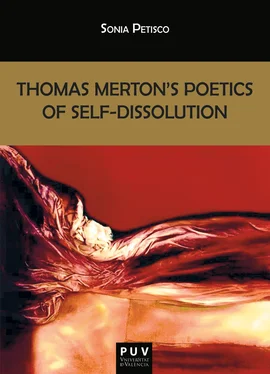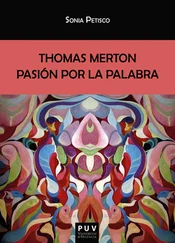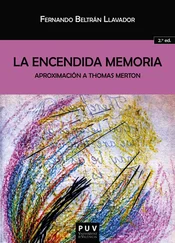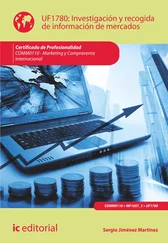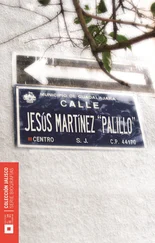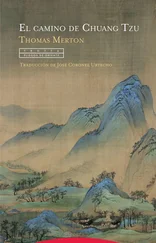Sonia Petisco Martínez - Thomas Merton's Poetics of Self-Dissolution
Здесь есть возможность читать онлайн «Sonia Petisco Martínez - Thomas Merton's Poetics of Self-Dissolution» — ознакомительный отрывок электронной книги совершенно бесплатно, а после прочтения отрывка купить полную версию. В некоторых случаях можно слушать аудио, скачать через торрент в формате fb2 и присутствует краткое содержание. Жанр: unrecognised, на английском языке. Описание произведения, (предисловие) а так же отзывы посетителей доступны на портале библиотеки ЛибКат.
- Название:Thomas Merton's Poetics of Self-Dissolution
- Автор:
- Жанр:
- Год:неизвестен
- ISBN:нет данных
- Рейтинг книги:5 / 5. Голосов: 1
-
Избранное:Добавить в избранное
- Отзывы:
-
Ваша оценка:
- 100
- 1
- 2
- 3
- 4
- 5
Thomas Merton's Poetics of Self-Dissolution: краткое содержание, описание и аннотация
Предлагаем к чтению аннотацию, описание, краткое содержание или предисловие (зависит от того, что написал сам автор книги «Thomas Merton's Poetics of Self-Dissolution»). Если вы не нашли необходимую информацию о книге — напишите в комментариях, мы постараемся отыскать её.
Thomas Merton's Poetics of Self-Dissolution — читать онлайн ознакомительный отрывок
Ниже представлен текст книги, разбитый по страницам. Система сохранения места последней прочитанной страницы, позволяет с удобством читать онлайн бесплатно книгу «Thomas Merton's Poetics of Self-Dissolution», без необходимости каждый раз заново искать на чём Вы остановились. Поставьте закладку, и сможете в любой момент перейти на страницу, на которой закончили чтение.
Интервал:
Закладка:
To conclude this promenade along the poetry of Thomas Merton, it could be said that within the context of a world possessed by the demon of alienation and destructiveness, in his lyrical fragments Merton tried to recreate a political and poetical area wherein man could imagine new forms of awareness rooted in the hidden ground of love. It is in this sapientia cordis that remains unknowable in the non-limitation and non-definition of the infinite, that Merton sees an extraordinary potential for profound changes within the material concreteness of our world and amidst the contingencies of human and personal stories.
1This essay is a revised version of an article which was peer-reviewed and selected to be published in the volume Estudios de Traducción, Cultura, Lengua y Literatura , ed. I. Pascua, B. Rey-Jouvin and M. Sarmiento (Las Palmas de Gran Canaria: Servicio de Publicaciones de la Universidad de Las Palmas de Gran Canaria, 2008), pp. 359-373.
2 The Collected Poems of Thomas Merton (New York: New Directions, 1977), p. 2.
3 The Collected Poems of Thomas Merton , op. cit., p. 3.
4“Beauty is truth, truth is beauty, – that is all/ye know on earth, and all ye need to know,” in The Poems of John Keats, ed. Miriam Allot (London: Longman, 1977), p. 32.
5Thomas Merton, Raids on the Unspeakable (New York: New Directions, 1966), p. 11.
6 The Collected Poems of Thomas Merton , op. cit., p. 20.
7Thomas Merton, The Ascent to Truth (Great Britain: Burn & Oates, 1994), p. 10. As the monk pointed out: “Man was made for the highest activity, which is in fact his rest. That activity, which is contemplation, is imminent and it transcends the level of sense and of discourse. Man’s guilty sense of his incapacity for this one deep activity which is the reason of his very existence, is precisely what drives him to seek oblivion in exterior motion and desire […] He has but to remain busy with trifles.” He finishes this reflection quoting Pascal’s wise words: “Distraction is the only thing that consoles us for our miseries and yet it is, itself, the greatest of our miseries.” Blaise Pascal quoted by Thomas Merton, The Ascent to Truth , op. cit., pp. 19-20.
8 The Collected Poems of Thomas Merton , op. cit., p. 20.
9Ibid., p. 8.
10Thomas Merton, Raids on the Unspeakable , op. cit., p. 19.
11 The Collected Poems of Thomas Merton , op. cit., p. 24.
12As Ross Labrie has pointed out, all these compositions where written in a period of great poetic fertility which might have coincided with the excitement that preceded his decision to enter Gethsemani. See Ross Labrie, The Art of Thomas Merton (Texas: The Texas Christian University Press, 1979), p. 111.
13 The Collected Poems of Thomas Merton , op. cit., pp. 30-31.
14Ibid., p. 35.
15 The Asian Journal of Thomas Merton (New York: New Directions, 1975), pp. 154-155.
16 The Collected Poems of Thomas Merton , op. cit., p. 55.
17Fernando Beltrán Llavador, Thomas Merton: la contemplación en la acción (Madrid: San Pablo, 1996), p. 73.
18We agree with Robert Waldron when he writes that “his poetry and prose serve as a bell summoning people to enter the waters of the psyche and embark on their own inner journey, one that calls every person ‘home’ to the Christ within.” Robert Waldron, “Merton’s Bells: A Clarion Call to Wholeness,” The Merton Seasonal , Vol. 18, No. 1 (Winter 1993), p. 28.
19 The Collected Poems of Thomas Merton , op. cit., p. 139. In these lines one can clearly see the influence of William Blake on the poetry of Thomas Merton. The English mystic wrote a poem entitled “Contemplation” which shares thematic and symbolic similarities with the poem we have just quoted: “Clamour brawls along the streets, and destruction hovers in the city’s smoke; but on these plains, and in these silent woods, true joys descend: here build thy nest.” William Blake, Selected Poems (Harmondsworth: Penguin Books, 1996), p. 47.
20This image of the bird has been used by many authors. Let us remember, as an example, the nightingale of Keats, the robin of Emily Dickinson, the sparrow of Wallace Stevens, among others.
21Thomas Merton, The Wisdom of the Desert (London: Shambhala Pocket Classics, 1994), p. 11.
22 The Collected Poems of Thomas Merton , op. cit., p. 168.
23Ibid., p. 212.
24Ibid., p. 197.
25Ibid., p. 219.
26Ibid., p. 282.
27Thomas Merton, A Search for Solitude: The Journals of Thomas Merton , ed. Lawrence S. Cunningham (New York: HarperCollins Publishers, 1997), p. 57.
28 The Collected Poems of Thomas Merton , op. cit., p. 227.
29Thomas Merton, Love and Living (New York: Bantam Books, 1980), p. 15.
30See Thich Nhat Hanh, Interbeing (Berkeley: Parallax Press, 1987).
31 The Collected Poems of Thomas Merton , op. cit., p. 290.
32Thomas Merton, No Man is an Island (Great Britain: Burns & Oates, 1993), p. xiii.
33 The Collected Poems of Thomas Merton , op. cit., p. 374.
34According to Merton, this movement of the black population in the US was “one of the most positive and successful expressions of Christian social action that has been seen anywhere in the twentieth century.” Thomas Merton, Conjectures of a Guilty Bystander (New York: Doubleday & Company, 1968), p. 131.
35 The Collected Poems of Thomas Merton , op. cit., p. 349.
36Thomas Merton, Love and Living , op. cit., p. 40.
37Thomas Merton, The Non-Violent Alternative (New York: Farrar, Straus & Giroux, 1987), p. 112.
38George Woodcock, Thomas Merton: Monk and Poet (British Columbia: Douglas & McIntyre Ltd., 1978), p. 176.
39James York Glimm, “Thomas Merton’s Last Poem: The Geography of Lograire ,” Renascence 26 (1974), pp. 93-95.
40Anthony Padovano, The Human Journey: Thomas Merton: Symbol of a Century (New York: Image Books, 1984), p. 136.
41See Michael Higgins, “Merton and the Real Poets: Paradise Rebugged,” The Merton Annual , Vol. 3 (1990), p. 175; Paul Pearson, “The Geography of Lograire: Thomas Merton’s Final Prophetic Vision,” in Thomas Merton: Poet, Monk, Prophet (Great Britain: Three Peaks Press, 1998), pp. 88-89.
42 The Collected Poems of Thomas Merton , op.cit., p. 123.
Chapter 2
“O Sweet Escape! O Smiling Flight!”
Commentaries on a Selection of Poems by Thomas Merton 1
If any want to become my followers, let them deny themselves and take up their cross and follow me. For those who want to save their life will lose it, and those who lose their life for my sake will find it.
Matthew 16:24-25
Most of Thomas Merton’s poems represent what could be called “poetics of dissolution.” They are glimpses which accurately convey his progressive abandonment of the “world” and of his own “self,” which were – as we will see — inseparable. Far from leading to a nihilist pessimism, his criticism of the forms of submission to reality, and his attack on individual identities throughout his work, constitute an authentic source of strength, inspiration, and joy and they lend themselves to poignant reflections, which I would like to share with the reader.
I shall begin with an ineffable and moving poem entitled “Macarius the Younger,” included in the book Emblems of a Season of Fury (1963). In a legendary manner, this composition is inspired by the lives of the Desert Fathers, those hermits and monks from the fourth and fifth centuries who, with great religious fervour, followed the Biblical maxim: “If you wish to be perfect, go, sell your possessions, and give the money to the poor, and you will have treasure in heaven” (Matthew 19:21-22) and for whom Merton always felt great admiration. These holy men got rid of all their possessions, left behind their houses, their father and their mother, and their children, and went to live in solitude in the deserts of Egypt, Palestine, Arabia and Persia in order to devote themselves to contemplation, prayer, (quies or sweet rest) and to a complete abandonment to the love of God and to the service of their brothers in charity and compassion. 2
Читать дальшеИнтервал:
Закладка:
Похожие книги на «Thomas Merton's Poetics of Self-Dissolution»
Представляем Вашему вниманию похожие книги на «Thomas Merton's Poetics of Self-Dissolution» списком для выбора. Мы отобрали схожую по названию и смыслу литературу в надежде предоставить читателям больше вариантов отыскать новые, интересные, ещё непрочитанные произведения.
Обсуждение, отзывы о книге «Thomas Merton's Poetics of Self-Dissolution» и просто собственные мнения читателей. Оставьте ваши комментарии, напишите, что Вы думаете о произведении, его смысле или главных героях. Укажите что конкретно понравилось, а что нет, и почему Вы так считаете.
